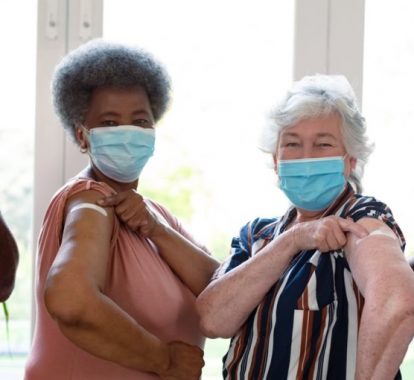U.S. measles outbreak: Do I need a vaccination?
May 2, 2019

According to the Centers for Disease Control (CDC), the United States is on track to have the highest number of confirmed cases of measles in nearly 20 years.
Some 626 individual cases of the disease have been confirmed in 22 states between Jan. 1 and April 19.
The contagious nature of the disease coupled with global travel and U.S. communities with low vaccination rates have all contributed to the spike in cases.
“Like all viruses, measles does not respond to antibiotics, so treatment is limited simply to providing comfort and treating symptoms,” said Dr. David Gude, Chief Medical Officer at Texas MedClinic. “Preventing the disease is key, and it starts with getting an MMR vaccination.”
Prior to the mid-1960’s when a vaccine was developed and the U.S. required children to be vaccinated, measles caused thousands of deaths—mostly children. Vaccination against the disease was hailed as a public health triumph because the vaccination was 100 percent effective. It was so successful that in 2000 it was declared eradicated in the U.S. because outbreaks were rare, and deaths scarce.
Due to the highly-effective vaccination program in the U.S., many of us born after 1957 may not know about the virus, its symptom and health complications.
So, what is measles and how do you get it?
Measles is an extremely contagious virus that starts with fever, runny nose, cough, red eyes, and sore throat, followed by a rash that spreads all over the body. The symptoms occur in sequential stages over a two-three-week period.
Measles spreads through the air when an infected person coughs or sneezes. It is so contagious that if one person has it, 9 out of 10 people around him or her will also become infected if they are not protected.
Does measles cause serious health complications or death?
Children are at highest risk for health complications from contracting measles.
According to the World Health Organization, close to 110,000 people died from measles in 2017 – mostly children under the age of 5 years, despite the availability of a safe and effective vaccine.
Although declared eradicated in the US in 2000, measles is still common in many parts of the world, including some countries in Europe, Asia, the Pacific, and Africa.
According to the CDC, one in every 20 children with measles gets pneumonia; one in 1,000 will develop encephalitis (swelling of the brain); one or two in 1,000 children will die. Life-long disabilities associated with the disease include brain damage and blindness.
How do you protect yourself and your family from measles?
Get vaccinated. The vaccine for the measles is called MMR (measles-mumps-rubella).
The CDC recommends all children get two doses of the MMR vaccine, starting with the first dose at 12 through 15 months of age, and the second dose at 4 through 6 years of age. Children can receive the second dose earlier as long as it is at least 28 days after the first dose.
MMR vaccine is given later than some other childhood vaccines because antibodies transferred from the mother to the baby can provide some protection from disease and make the MMR vaccine less effective until about 1 year of age.
For those traveling internationally, find the CDC guidelines at https://www.cdc.gov/vaccines/vpd/mmr/public/index.html
If I was born before 1989 and only had one dose of the MMR vaccine, should I receive another dose?
According to the CDC, those born between 1957-1989 received one dose of MMR, which was the norm.
If you are a health care worker, have young children, travel internationally and or live in an area where there is a measles outbreak, CDC recommends getting the second dose of MMR.
I lost my shot/immunization records or don’t remember if I have had the vaccination as a child; what do I do?
Adults who do not have evidence of immunity should get at least one dose of MMR vaccine.
How well does the vaccination work?
People who received two doses of MMR vaccine as children according to the U.S. vaccination schedule are usually considered protected for life and don’t need a booster dose.
Texas MedClinic offers the MMR vaccine. Check-in online to see a provider.
Texas MedClinic was established in 1982 by Dr. Bernard T. Swift, Jr., as a group medical practice that specializes in urgent care and occupational medicine. Texas MedClinic has grown to 13 locations in San Antonio, two in New Braunfels, one in Spring Branch, two in Austin and one in Round Rock. Texas MedClinic is staffed with 82 medical providers including physicians, physician assistants and nurse practitioners and over 450 employees.





